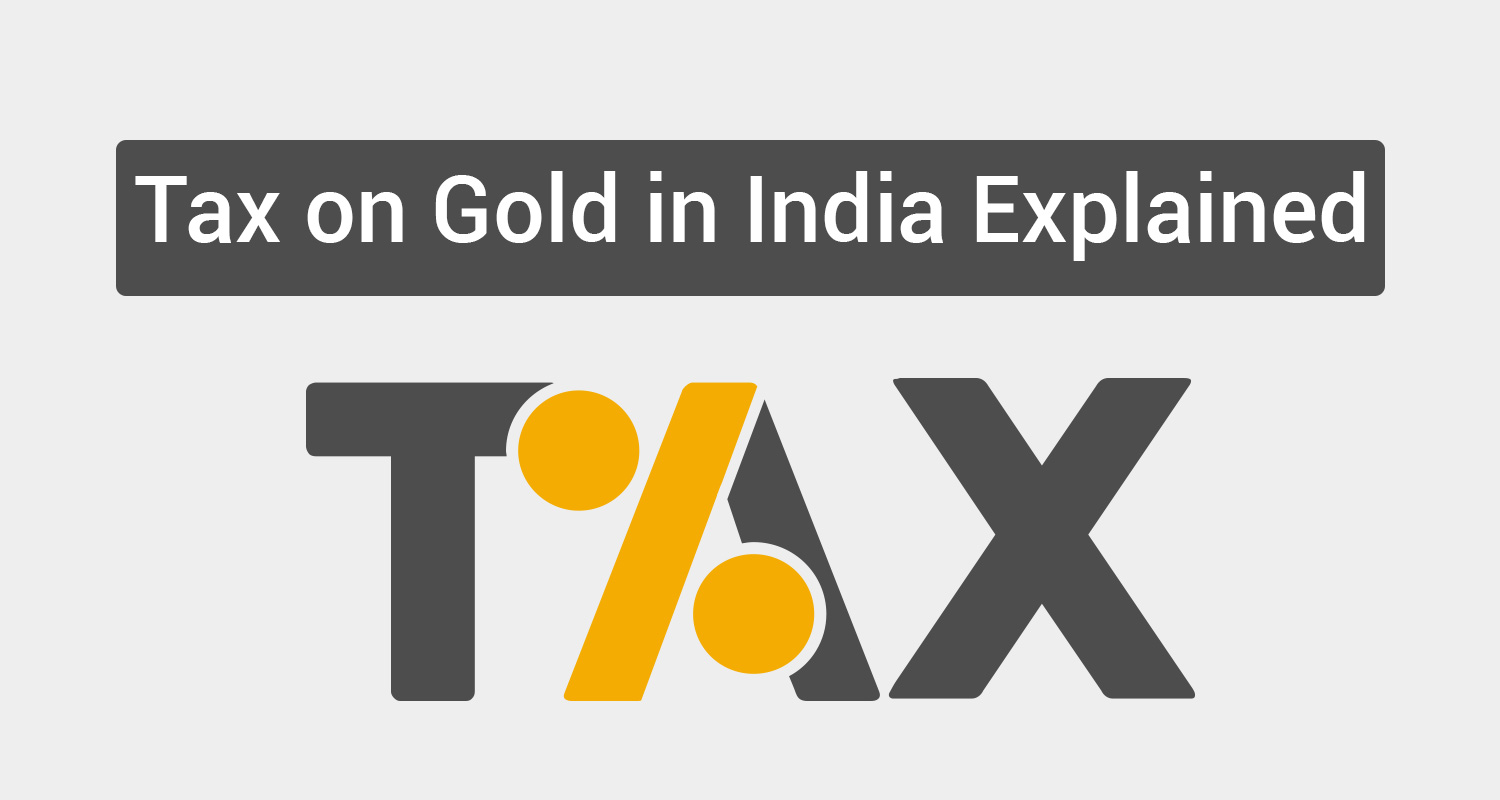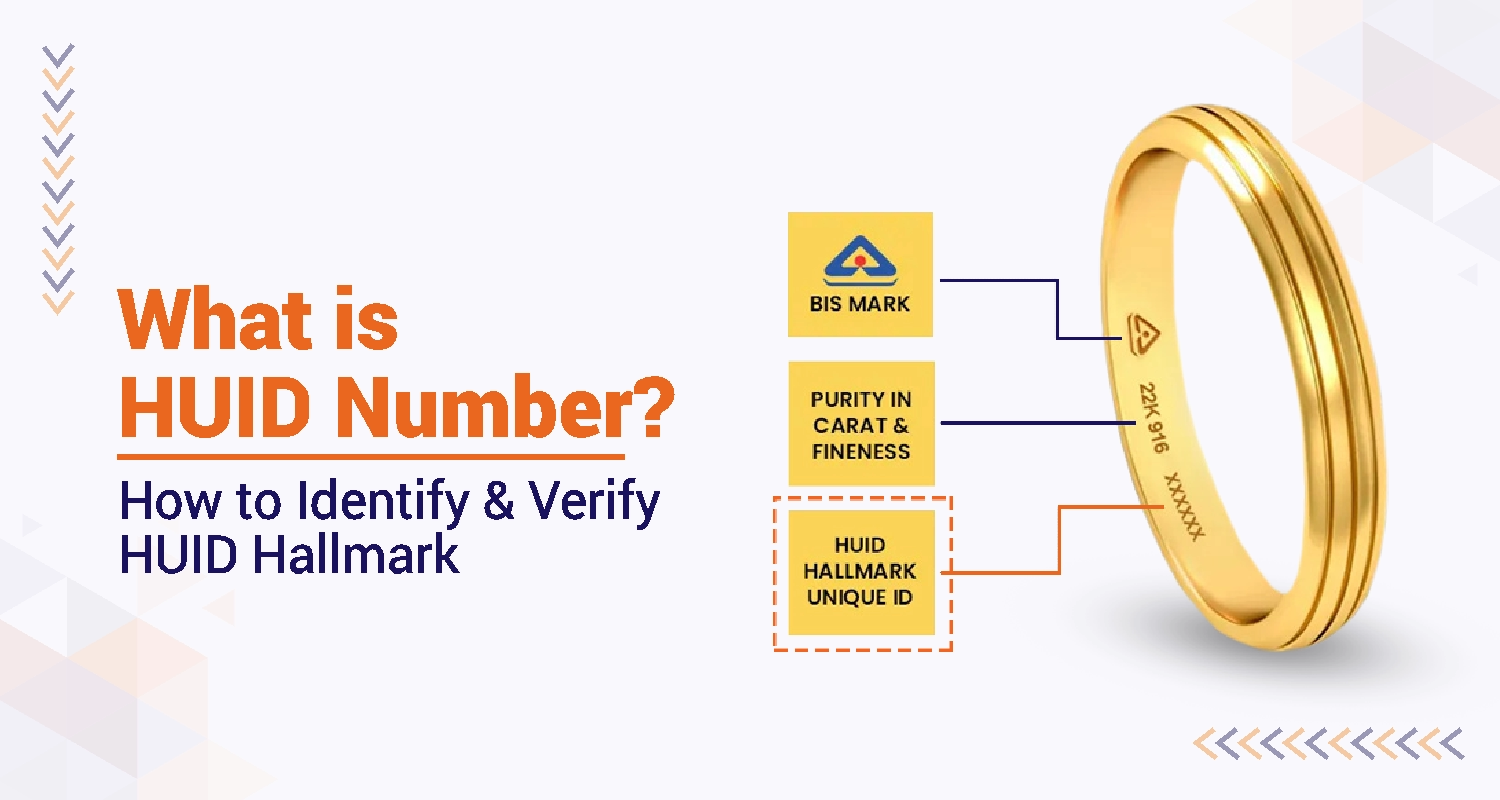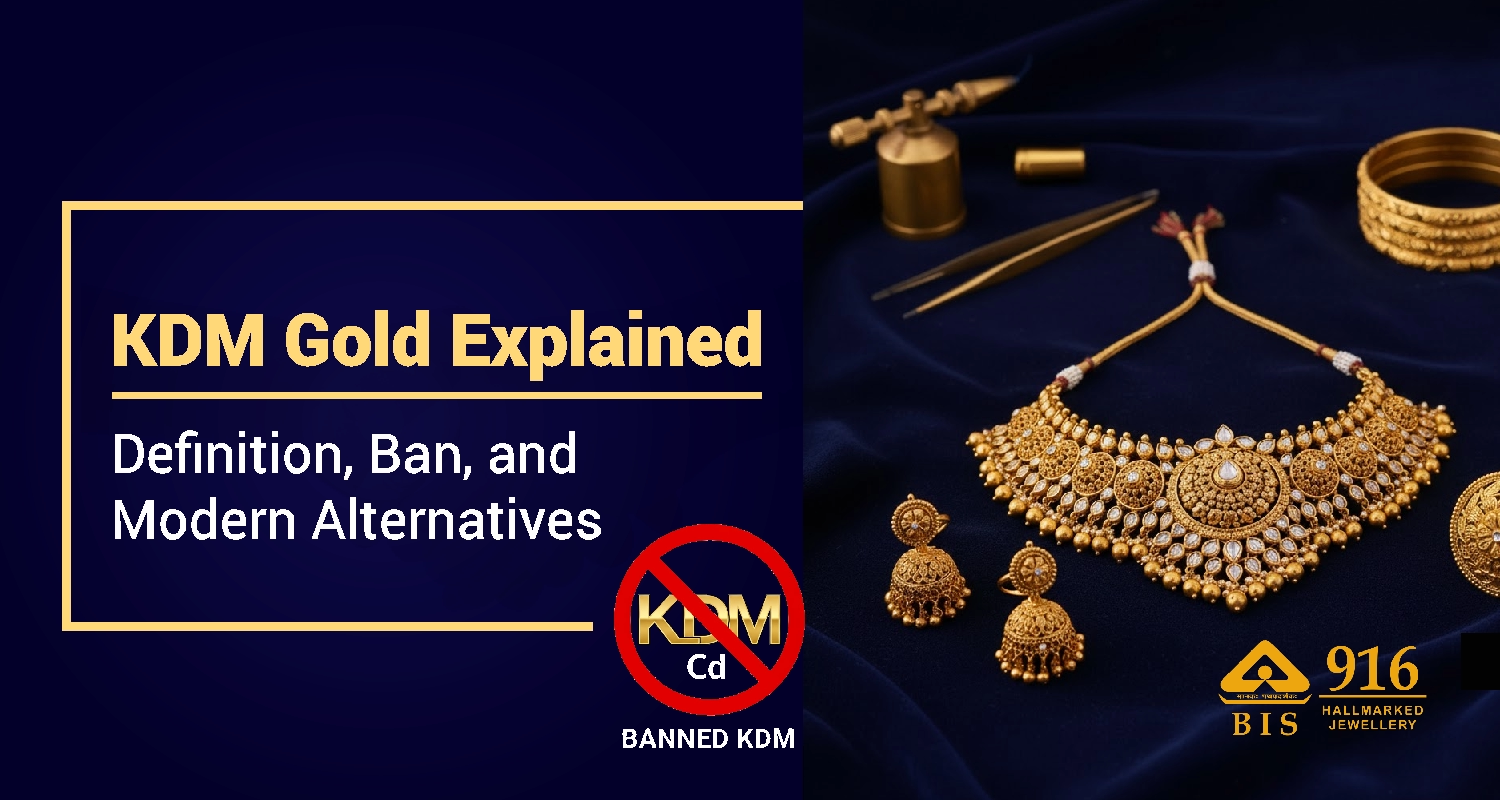Tax on Gold in India 2025 | Purchase & Selling Rates for Jewellery
Table of Contents
Gold remains one of the most trusted investment options in India, valued for its stability and ability to preserve wealth over time. However, when it comes to buying or selling gold, many investors overlook an important aspect—taxation.
Understanding the tax implications at both stages is essential. At the time of purchase, you may need to pay GST and, in some cases, import duties. When selling, the profit you make can attract capital gains tax, which varies based on how long you’ve held the gold. Knowing these rules not only helps you stay compliant but also allows you to plan your transactions in a way that maximizes returns and minimizes unnecessary costs.
Types of Taxes on Physical Gold Purchase
When you buy gold in India, two central taxes apply:
- GST on Gold: 3% (1.5% CGST + 1.5% SGST) on the value of the gold—applicable to bars, coins, or jewellery regardless of purity.
- GST on Making Charges: 5% on labour or craftsmanship fees charged by the jeweller
Impact of GST:
- A ₹1,00,000 gold jewellery purchase attracts ₹3,000 GST on gold value plus ₹50 on every ₹1,000 of making charges
- Businesses registered under GST can claim Input Tax Credit (ITC) on gold purchases used for resale or manufacturing.
Current Tax Rates on Gold (2025)
| Component | GST Rate | Tax Base |
|---|---|---|
| Gold (bars, coins, jewelry) | 3% | Intrinsic value of gold |
| Making charges | 5% | Labour/craftsmanship fees |
| Imported gold | 3% IGST | On C&F value + customs duty (6%) |
Example Calculation
- Gold value: ₹1,00,000 with GST @3% = ₹3,000
- Making charges: ₹5,000 with GST @5% = ₹250
- Total GST payable: ₹3,250
Final price: ₹1,05,000 + ₹3,250 = ₹1,08,250
Types of Taxes on Physical Gold Selling
1) Short-term Capital Gains Tax (STCG)
STCG applies when gold is sold within three years of purchase. This gain is added to the individual's income and taxed based on their income tax slab, such that, for instance, if one falls under the 30% slab, the gain amount (sale price minus purchase cost) will be taxed at 30%.2) Long-term Capital Gains Tax (LTCG)
LTCG on gold gains sold after three years of purchase is 20%, with an indexation benefit used to adjust the purchase price reflecting inflation's impact. This tax can be waived by using all the net proceeds to buy government tax-benefit bonds or invest in property within specific time frames.3) GST on Jewellery Exchange
Exchanging gold jewellery involves nuances regarding taxation, requiring caution to prevent deception during transactions. Exchanging the same quantity of gold doesn't attract GST. For instance, exchanging 100 grams of jewellery for another 100 grams incurs no GST on the gold, with charges applicable only for the difference in making charges and related taxes. Hence, vigilance is essential to ensure accurate taxation and prevent overcharges during exchanges.Types of Taxes on Digital Gold
Taxation on Digital Gold operates similarly to physical gold. The basic difference is in the mode of purchase – one can buy digital gold online and store it securely in vaults by the insurer. Regulatory bodies like RBI or SEBI lack jurisdiction over this investment avenue.
If you're considering digital gold investments, you must be mindful that these purchases incur taxation following the income tax regulations governing gold investments, which is 20.8%, like physical or paper gold.
The taxation structure for digital gold offerings includes the following:Taxation on SGBs
SGBs offer a tax-efficient way to invest in gold, especially for those seeking to hold the investment for three to eight years. While interest income is taxable, the exemption from LTCG and the minimal GST liability make SGBs an attractive option compared to physical gold.
Short-Term Capital Gains (STCG)
- Applicable if SGBs are sold within three years of purchase.
- Added to an individual's income and taxed based on the relevant tax slab.
Long-Term Capital Gains (LTCG)
- Applicable if SGBs are sold at a profit after three years.
- Taxed at 20% with indexation benefits or 10% without indexation.
- Exempt if held till maturity (eight years).
- Applies to individuals, not HUFs or Trusts.
Tax Advantages of SGBs
- No GST or Charges: SGBs are considered securities and digital assets, exempt from GST.
- Minimal GST Liability: STT and brokerage attract a maximum 0.75% GST.
- No TDS: Tax Deducted at Source (TDS) is not applicable for SGBs.
Interest Income Taxation
- Interest Rate: SGBs offer a 2.5% per annum interest rate.
Tax Liability: Interest income is added to your income and taxed according to your applicable tax slab.
Taxation on other Paper Gold
Unlike SGBs, these may not offer maturity benefits or physical redemption options.
- Investment Types: Gold Mutual Funds and ETFs
- Tax on Capital Gains:
- Long-Term Capital Gains (LTCG): 20.8% with indexation benefits.
- Short-Term Capital Gains (STCG): Taxed according to your income slab.
Tax on Gold Derivatives
Similar to Commodity F&O Trading, the tax treatment may vary depending on the trading strategy and holding period.
- Investment Type: Contracts based on gold price (commodities markets)
- Tax Implications: Similar to commodity Futures and Options (F&O) trading.
Tax Advantages: Expenses can be offset against income if classified as
Income Tax on Gifts/Inheritances of Gold
As per the Income Tax Act, gold received as a gift can be taxable, if certain conditions are met. Suppose the gold obtained is from a non-relative and the total value of such gifts in a financial year exceeds ₹50,000. In that case, the entire value becomes taxable as ‘Income from Other Sources’ and is taxed according to your applicable income tax slab.
Exemptions – When Gold Gifts Are Not Taxable
- From specified relatives: Parents, spouse, siblings, children, and other relatives as defined under the Income Tax Act.
- On the occasion of marriage: Gold received by the bride or groom during their wedding is fully exempt from tax.
- By inheritance or will: Gold passed on as part of an inheritance is exempt, though capital gains tax may apply when it is later sold.
Tax for NRIs buying or selling gold
Certain rules apply when you are an NRI, so consult a tax advisor for specific tax implications and potential tax minimization strategies for NRIs.
- Investment Restrictions: NRIs cannot invest in Sovereign Gold Bonds (SGBs).
- Tax Rates: Similar to Indian residents.
- Tax Deducted at Source (TDS): Applies to Gold ETF or mutual fund redemptions.
- Short-term returns: 30% TDS
- Long-term returns: 20% TDS
Conclusion
Gold investments or owning gold for personal use can benefit in several ways but one must remember that taxes matter at every stage. Whether you’re selling gold or pledging it for a loan, understanding the tax implications can help you in your decision. For instance, knowing how capital gains tax works may help you choose the right time to sell, while being aware of valuation rules ensures you get the best deal when pledging gold for credit.
If you’re considering a gold loan, IIFL Gold Loan offers competitive interest rates, transparent valuation, and quick disbursal, making it a convenient way to unlock the value of your gold without selling it.
Tax on Gold in India

Get Gold Loan at the comfort of your home
Apply NowFrequently Asked Questions
In India, tax exemption on the amount of gold depends on how you receive it:
- If you receive it as a gift or inheritance: Gold received as a gift or inheritance from close family members (parents, spouse, children) is exempt from income tax under Section 56(2) of the Income Tax Act, regardless of the quantity. However, gifts exceeding Rs. 50,000 from non-relatives are taxable as Income from Other Sources. Gold jewellery received at weddings enjoys tax exemption, but any subsequent sale is subject to capital gains tax.
- If you purchase: When you purchase gold, there's no direct exemption based on quantity. However, taxes are levied on capital gains when you sell the gold.
The tax you pay on selling gold depends on how long you've held it:
- Sold within 3 years (Short-term Capital Gains): This is taxed as per your income tax slab. For example, if you're in the 30% bracket, the profit from selling the gold will be taxed at 30%.
- Sold after 3 years (Long-term Capital Gains): You pay a flat 20.8% tax, with an adjustment for inflation (indexation). This tax can be avoided if you invest the entire sale proceeds in government bonds or specific real estate investments within a set timeframe.
Exchanging gold jewelry generally doesn't attract GST as long as you're exchanging the same quantity of gold. However, you might pay tax on any difference in making charges or other fees associated with the exchange.
Not really. Each case, whether it is digital gold or physical has its own set of considerations. Physical gold might be slightly cheaper upfront, but you'll need to factor in making charges, potential customs duty and GST, and storage costs. Digital gold has management fees and a slightly wider spread, but eliminates storage worries and offers secure storage. So, the "cheaper" option depends on your priorities: convenience and security with digital gold, or potentially lower upfront cost with physical (considering long-term storage).
According to the Central Board of Direct Taxes (CBDT), there are limits on how much gold individuals can hold without risk of confiscation. These limits vary depending on marital status and gender:
- Married women: Up to 500 grams
- Unmarried women: Up to 250 grams
- Married and unmarried men: Up to 100 grams
There's no limit on the amount of gold you can hold, but tax applies when you can't explain the source of income used to buy it. The Central Board of Direct Taxes (CBDT) outlines limits for unaccounted gold jewellery: women can possess up to 500 grams (married) or 250 grams (unmarried), and men can hold 100 grams.
Taxes on gold can involve various charges depending on the situation. These include customs duty on imported gold, Goods and Services Tax (GST) on purchase (applies to making charges, may vary), income tax on gold received as a gift exceeding Rs. 50,000, and capital gains tax when selling gold within 3 years of purchase.
No, you'll usually pay GST on the making charges of purchased gold. However, the actual gold itself may be exempt.
Selling gold generally incurs capital gains tax unless exempt. To potentially qualify for exemptions, consult a tax advisor on how long to hold the gold before selling. In some cases, selling inherited gold or owning it for more than 3 years might qualify for tax benefits.
Completely avoiding taxes on gold is tricky, but there are ways to minimize them. Look into tax limits for small purchases. Consider buying pre-owned gold, though capital gains tax might still apply. Explore tax-advantaged options like gold ETFs or Sovereign Gold Bonds (if available) that might offer tax benefits.
Government websites or consulting a tax professional are the best ways to stay updated on current tax rules and potential changes affecting gold purchases and sales.
Disclaimer : The information in this blog is for general purposes only and may change without notice. It does not constitute legal, tax, or financial advice. Readers should seek professional guidance and make decisions at their own discretion. IIFL Finance is not liable for any reliance on this content. Read more




